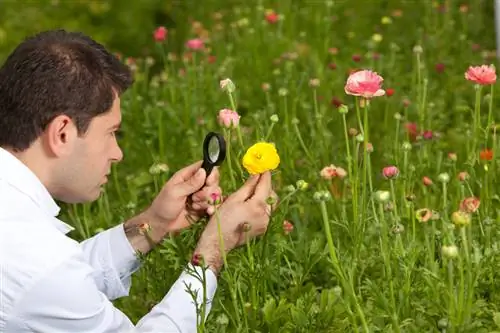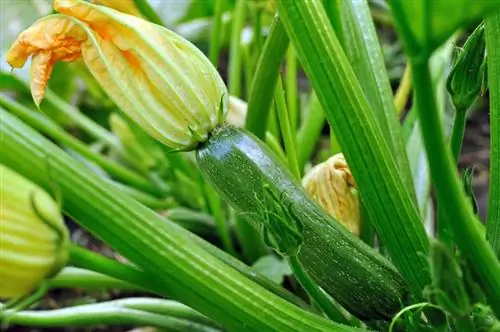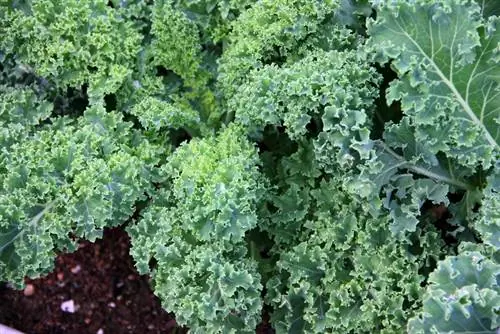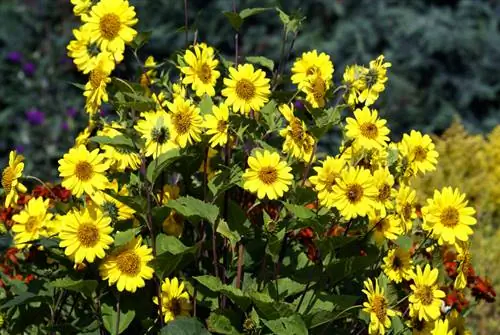- Author admin leonars@hobbygardeners.com.
- Public 2023-12-16 16:46.
- Last modified 2025-06-01 06:02.
Whether in a clear creamy white, a bright sunny yellow, a rich crimson red or another color - ranunculus impress with their wonderful flower colors and their unique appearance. Do you get something out of them in the long term or are they only annual?
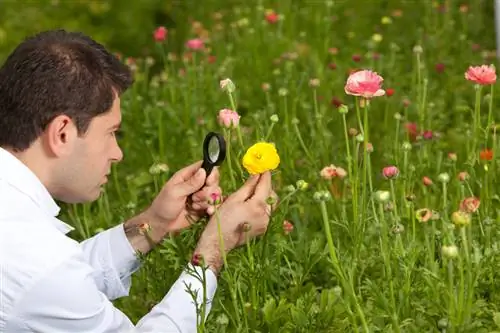
Are ranunculus annuals or perennials?
Ranunculus are perennial plants that can survive for several years thanks to their tubers. For ideal husbandry, they should be kept frost-free over the winter, kept in a partially shaded location and fertilized regularly. Diseases and pest damage should be avoided.
A tuber as a survival organ
After sowing, a tuber forms over the course of several months. It is the survival organ of the ranunculus. With the help of their work, the plant can exist for many years (perennial). The ranunculus retreats into the tuber in autumn and until spring. Towards April it sprouts again.
Lifespan - depending on temperatures
But the tuber is sensitive to cold in many cases and depending on the variety. If the temperatures fall below -10 °C and the tuber lies unprotected in the open ground about 5 cm below the surface of the earth, it will freeze.
So if you plan to cultivate your ranunculus for several years, you should ideally dig up the tuber in autumn and move it to a frost-free place. Wooden boxes or simple pots filled with soil are well suited for overwintering. Important: Do not water or fertilize. The tuber should go into a resting phase.
The location and care are also crucial
But it's not just the temperatures that play a role in determining whether a ranunculus is an annual or a perennial. The location and care are also important. Provide your ranunculus with a suitable location! Ideally, this is located in partial shade. The soil should be permeable to water.
In care, this is important for perennials:
- Keep soil moist
- fertilize regularly
- Stop fertilizing and watering during winter rest
- remove old plant parts
- Prevent seed formation (saving energy)
- protect against diseases
- Avoid pest damage
Tip
Since ranunculus can be purchased inexpensively both as plants and as mere tubers, you don't necessarily need to go to the trouble of overwintering. You can also buy and cultivate new ranunculus every year.

